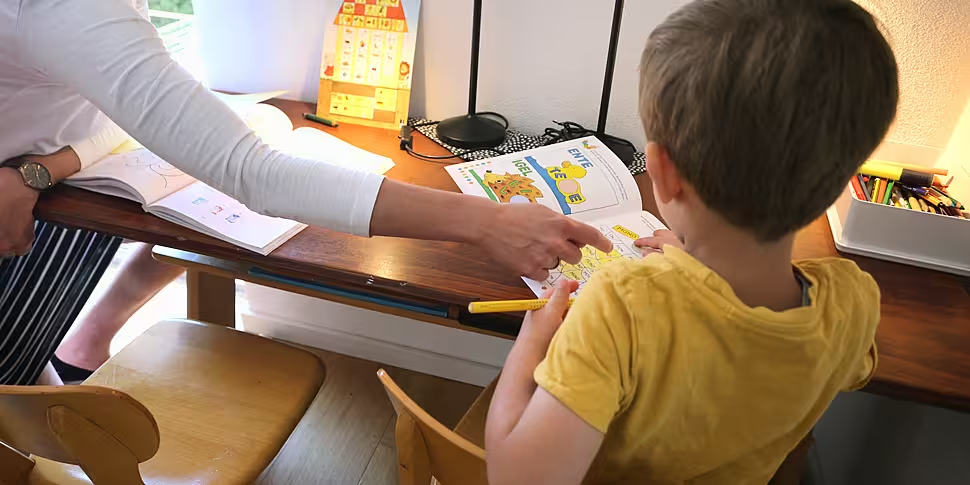On this week's 'Parenting' segment on the Moncrieff show, one listener sought advice about upsetting messages she found her son had sent in a group chat.
Joanna Fortune, psychotherapist specialising in Child & Adult Psychotherapy, joined Moncrieff to answer this and other listeners' questions.
The question:
My 4-year-old has begun the 'Why?' phase, and while I love his questions, sometimes I find it hard to find answers, particularly for tricky, real-life questions. Are there any books that we can read that might help me explain things better to him?
Joanna’s advice:
“I mean I just love this question because talking about books for children I could do all day… And I actually love this four, five year old phase. It’s just peak curiosity and they’ll go deeper and deeper and often we go, ‘Oh my gosh, I’ve gone down a rabbit hole here with this topic.’
“They’re fascinated, no matter what’s going on. So there are endless books. I’ve mentioned here before there’s a bunny rabbit, bear [book] out there having every crisis known to childkind. So you’ll always find a book.
Listen and subscribe to Moncrieff on Apple Podcasts, Google Podcasts or Spotify.
Download, listen and subscribe on the Newstalk App.
You can also listen to Newstalk live on newstalk.com or on Alexa, by adding the Newstalk skill and asking: 'Alexa, play Newstalk'.
“I think when it comes to children’s books you have to be selective, rather than collective. Because you could end up gathering books that are okay but they’re only okay. And actually, there are some really, really beautiful ones out there.”
She added:
“Topics in my house tend to be very nature driven at the moment and there is a gorgeous one, Irish produced and for charity… It’s called ‘The Tree by The Sea’.
“We just love it… It takes real life topics, there’s a real life tree, it really exists.
“But even if you don’t live near the tree, what’s covered in the book so beautifully is about the environment, about animals and about taking care of nature.
“And then you can take all of that curious little four year to the UNESCO app associated with it and say, ‘Well let’s look up about herons and learn about them’ and ‘Let’s look up about what’s going on.’
“Stories are such a great way to stimulate imagination and creativity but also we know that when we cover topics of nature, science and the world with children, as adults it tends to lead to us fostering more pretend play opportunities because you can dress up as the animals and play it out. You can really take it deeper.
“As Gaeilge, books that cover nice child life experiences, Sadhb Devlin writes beautiful books in Irish. There’s one about a child who just wants his Mam to stop doing Mam jobs and play with him. That’s so relatable.
“And one about, ‘Granny gave me a jumper but I don’t like it but I don’t want to hurt her feelings.’
“They’re beautiful books and children go, ‘Oh yeah, I’ve had that experience.’
“So thinking in terms of what does my child live, think and feel. And finding the books that are really relevant to them.
“Beautiful illustrations will always win out because they read the story in the visual as well as the words.
“So be selective, get out there and ask questions. And go to bookstores that specialise in children’s books because the staff in there are just incredibly knowledgeable.”
She concluded:
“The good books will answer the questions!”
Main image: A mother helps her child fill out his textbook. Photo: Karl-Josef Hildenbrand/DPA









